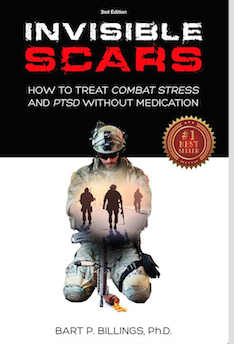Ask the Psychologist Issue #8: How do you know if People in the Media are Telling the Truth
- Posted by Bart Billings
- Posted on September 18, 2020
- Ask the Psychologist
- Comments Off on Ask the Psychologist Issue #8: How do you know if People in the Media are Telling the Truth
The University Of Scranton is a Jesuit College in Pennsylvania that required, when I attended, all its students to basically minor in philosophy. Many of us complained about having to take all these classes at the time, since we didn’t immediately see how it would help us get a job when we graduated. But as the years passed, I gradually began to see the value of lessons learned from the Jesuits that they drilled us on their value.
Today, more than ever, I value the lessons learned in our Philosophy classes about Inductive and Deductive Reasoning, when evaluating what is true information and what is false information.
https://www.livescience.com/21569-deduction-vs-induction.html
Deductive reasoning starts out with a general statement and examines the possibilities to reach a specific, logical conclusion. We go from the general to the specific observations.
An example of a false statement using deductive reasoning is: If the generalization is wrong, the conclusion may be logical, but it may also be untrue. For example, the argument, “All bald men are grandfathers. Harold is bald. Therefore, Harold is a grandfather,” is valid logically but it is untrue because the original statement is false.
Inductive reasoning makes broad generalizations from specific observations. Basically, there is data, and then conclusions are drawn from the data. In inductive inference, we go from the specific to the general.
Even if all of the premises are true in a statement, inductive reasoning allows for the conclusion to be false. Here’s an example: “Harold is a grandfather. Harold is bald. Therefore, all grandfathers are bald.” The conclusion does not follow logically from the statements.
Most people, when listening to media news, most often use another form of reasoning, which is;
Abductive reasoning, which usually starts with an incomplete set of observations and proceeds to the likeliest possible explanation for the group of observations. It often entails making an educated guess after observing a phenomenon for which there is no clear explanation.
This type of reasoning is heavily depended on a persons life experiences and education, more than Deductive or Inductive reasoning.
What I have always explained to my patients is that no two people can see anything 100% the same way since we all have unique brains, like we have unique individual fingerprints and therefore most likely, we practice Abductive Reasoning.
Its important to understand that every conversation with another person is a disagreement, to various degrees. We must learn that people are right for themselves, based on them having a unique brain. Since we are both right for ourselves, we must learn to compromise and negotiate to meet somewhere in the middle and retain some of our unique perceptions.
There are some instances when two people, or the media we observe, are so far apart in how things are viewed, that there is no way we can meet anywhere near the center. For example, if I have a baseball team that is in California and you have one in New York, meeting half way to play would require traveling too far. But if my team is in San Diego California and yours is in Los Angeles, meeting half way is reasonable. Therefore we must remember that there are some people or media outlets, that we can’t deal with, since we would have to go far in give up too much of our freedom to perceive.
If people can understand that each perception with another person, or the news media analyst, is a disagreement, to a degree and that they are right for themselves, as we are for ourselves, then we can agree to disagree.
But if they or we only feel we are right for ourselves and the other person or media source is wrong, then we have an argument. An argument becomes emotional because we make an attempt to deprive another of their freedom to perceive. People will fight to the end to retain their freedom to perceive, since it is a basic human psychological need.
By using Inductive or Deductive reasoning and understanding the difference between a Disagreement and Argument, we can come to understand more clearly what is true for ourselves and what media outlets and people we want to patronize.
Bart P. Billings,Ph.D.
COL SCNG-SC, Military Medical Directorate (Ret.)
Licensed Clinical Psychologist CA PSY 7656
Licensed Marriage, Family Therapist CA LMFT 4888
—Director/Founder International Military & Civilian Combat Stress Conference
—Initial Enlisted Ranks and Retired as Medical Service Corps Officer with a total of 34 years in US Army
—Recipient of the 2014 Human Rights Award from Citizens Commission on Human Rights International & The University Of Scranton “Frank O’Hara Award” in 2016.
bartbillings@yahoo.com
http://bartpbillings.com (“
www.combatstress.bizhosting.co
—Cell 760 500-5040
—Ph 760 438-2788
AVAILABLE NOW
“INVISIBLE SCARS” is available at Amazon.com: http://a.co/1WKPjsc

Some Amazon 5 Star Recent Customer Reviews
– This Book Saved My Life.
– I am sure that this book will save lives.
– 25 pages into Invisible Scars, I knew that it was the second most important book I would ever read…after the Bible. — David T. Ossian, Asst. National Vice Commandant , Marine Corps League
– This book is life changing…everyone needs to read ….
MOST CURRENT NEW BOOK
“HEALTHY EATING” is available at Amazon.com: http://a.co/4wlhtsa



